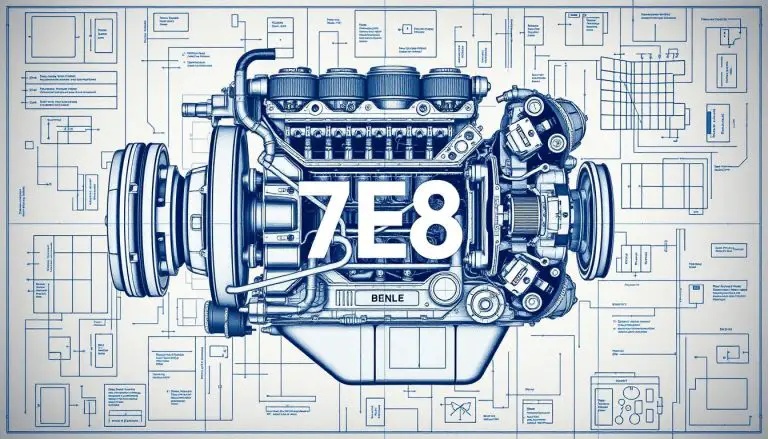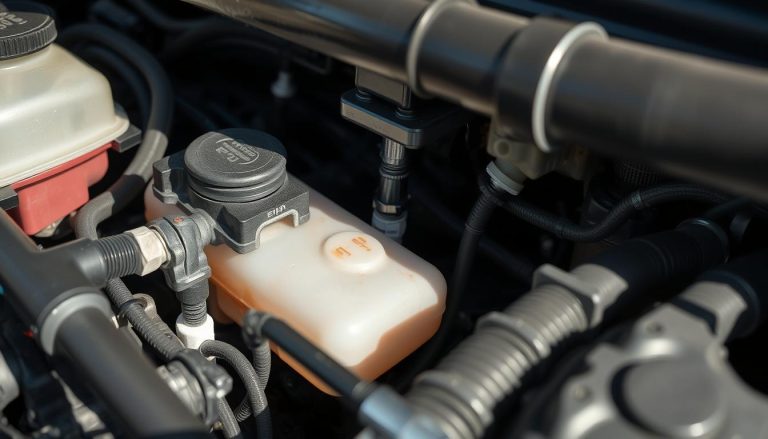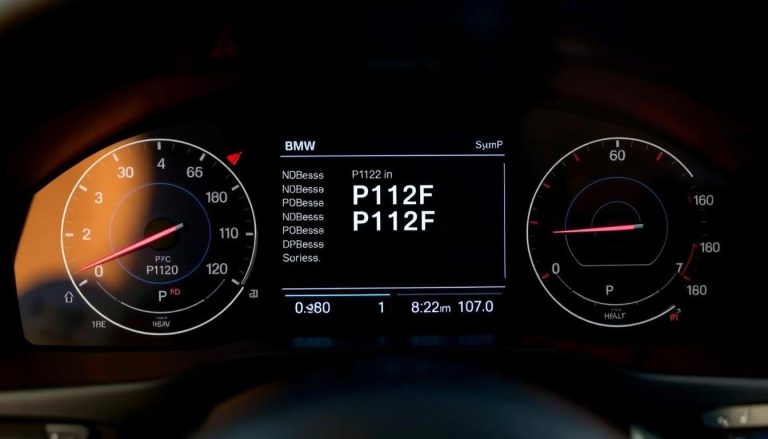If you’re a car enthusiast or just someone who relies on your vehicle to get from point A to B, encountering diagnostic trouble codes can be frustrating. One such code that might pop up is the P0354 code, indicating an issue with the ignition coil’s primary and secondary circuit. Ignition coils are crucial in ensuring your engine runs smoothly; when they malfunction, it could lead to a cascade of problems.
Understanding this code is key not only for maintaining optimal performance but also for preventing further issues down the line. In this article, we’ll dive deep into what the P0354 code means, its potential causes and symptoms, how to diagnose it effectively, and what solutions exist to tackle this pesky problem head-on.
What does the P0354 code mean?
The P0354 code is part of the On-Board Diagnostics II (OBD-II) system, indicating a malfunction in the ignition coil circuit. Specifically, it points to issues within the primary and secondary circuits of ignition coil D.
When your vehicle’s computer detects an irregularity in how this particular coil operates, it triggers the P0354 code. Each ignition coil plays a vital role in transforming battery voltage into high-voltage electricity. This process ignites the air-fuel mixture within each cylinder.
A malfunction can lead to misfires or poor engine performance. As such, addressing this trouble code promptly is essential for keeping your engine running smoothly and efficiently. Understanding what prompts this code will help you take appropriate action before more serious problems arise with your vehicle’s ignition system.
What parts can be affected by P0354 code ?
When dealing with the P0354 code, several components can be impacted. The ignition coil is the primary suspect, as this code indicates a malfunction in its primary or secondary circuit. If the coil fails, it disrupts the spark needed for proper engine performance.
Wiring and connectors are also crucial players. Damaged wires or corroded connectors can lead to poor electrical connections, triggering this code. A thorough inspection of these parts is essential.
Additionally, the Engine Control Module (ECM) may face issues due to incorrect signals received from faulty ignition coils or wiring problems.
In some cases, related sensors like crankshaft position sensors might also exhibit errors alongside P0354. It’s vital to address all affected components for effective resolution and optimal vehicle operation.
What are the possible causes of a P0354 code?
The P0354 code often indicates issues with the ignition coil’s primary or secondary circuit. Several factors can contribute to this malfunction.
A damaged ignition coil is a common culprit. Wear and tear over time can lead to breakdowns in its functionality.
Faulty wiring or poor connections may disrupt the signal between the ignition coil and the powertrain control module (PCM). Corrosion or frayed wires can cause intermittent failures.
Additionally, a malfunctioning PCM itself might misinterpret signals from the ignition system, leading to erroneous codes like P0354.
Spark plug problems can also affect how well an ignition coil performs. Worn-out plugs create resistance that strains the entire system. Each of these potential causes requires careful inspection for proper diagnosis and repair.
What are the common symptoms of a P0354 code?
When your vehicle throws a P0354 code, it often comes with a set of noticeable symptoms. One of the first signs is an engine misfire. You may experience rough idling or stalling as the ignition coil struggles to perform its job.
Another common symptom includes decreased engine performance. Acceleration might feel sluggish, and you could notice reduced power when driving.
Additionally, the check engine light will usually illuminate on your dashboard. This warning is hard to ignore and indicates that there’s an issue needing attention.
Drivers might also face issues with fuel efficiency. If you’re filling up more frequently without any changes in driving habits, it could be linked to this code.
Some vehicles may emit unusual smells or sounds from the engine compartment as a result of malfunctioning components related to the P0354 code. Each of these indicators serves as a call for prompt diagnosis and repair.
What are the diagnostic steps for a P0354 code?
Diagnosing the P0354 code begins with a thorough visual inspection. Look for damaged wiring or corroded connectors linked to the ignition coil system. Any signs of wear can be crucial.
Next, use an OBD-II scanner to confirm the presence of the P0354 code and check for additional codes that may provide more context about your vehicle’s issues.
Testing individual components follows this step. A multimeter can help measure voltage and resistance in circuits related to the ignition coil D. This will determine if they are functioning within specifications.
Additionally, consider running a cylinder balance test under load conditions. This helps identify any misfires or performance hiccups tied to faulty coils.
Verify whether there is adequate battery voltage during engine operation, as low power supply might lead to false readings or poor performance related to ignition coils.
How serious Is the P0354 Code? Can I continue driving with the P0354 code?
The seriousness of the P0354 code cannot be underestimated. This diagnostic trouble code indicates a malfunction in the ignition coil’s primary or secondary circuit. Ignoring this issue can lead to misfires, reduced engine performance, and even damage to other components.
If you continue driving with a P0354 code, you’re risking further complications. The vehicle may run rough, consume more fuel, and experience hesitation during acceleration. These symptoms can turn into significant headaches down the road.
While it might seem convenient to ignore warning lights for a while, it’s unwise to do so with this code. Getting it diagnosed promptly is essential for maintaining your car’s health and ensuring safety on the road. Don’t wait until minor issues escalate into costly repairs that could have been easily avoided.
What are the repair solutions for a P0354 What other codes may be related to P0354? ?
Repairing a P0354 code often involves addressing the ignition coil or its surrounding components. Start by inspecting the ignition coil for signs of damage, corrosion, or poor connections. Replacing a faulty ignition coil can resolve many issues related to this error code.
Next, check the wiring and connectors leading to the ignition coil. Damaged wires can cause communication failures within the circuit. If you identify any problems here, repair or replace them as necessary.
In some cases, testing other components like spark plugs may be essential. Worn-out spark plugs can contribute to misfires and exacerbate symptoms associated with a P0354 code.
Related trouble codes such as P0300 (Random/Multiple Cylinder Misfire Detected) or P0360 (Camshaft Position Sensor Circuit Malfunction) might appear alongside P0354. Addressing these codes together ensures comprehensive vehicle health and performance improvements.
How long and How much does it cost to diagnose and repair a P0354 code?
The cost and time for diagnosing the P0354 code can vary significantly. Typically, a professional mechanic might charge between $75 to $150 for diagnostic services. This initial assessment helps pinpoint the issue.
Repair costs can differ based on what’s wrong. If it’s just a faulty ignition coil replacement, you could spend anywhere from $100 to $300, including parts and labor. However, if wiring issues or other components are involved, expenses may rise substantially.
On average, expect the diagnosis to take about one hour. Repairs might extend over several hours depending on complexity and part availability.
Always remember that getting multiple quotes can help ensure you’re not overpaying for service while also giving insight into potential problems with your vehicle’s ignition system.
How can I avoid a P0354 code?
To avoid a P0354 code, regular maintenance is essential. Keep up with routine inspections of your ignition system. This includes checking spark plugs and ignition coils for wear or damage.
Use high-quality fuel to prevent deposits from building up in the combustion chamber. Low-quality fuel can lead to performance issues, affecting the ignition system’s functionality.
Additionally, maintain proper electrical connections. Corrosion or loose wiring can disrupt signals between components, resulting in faults like P0354.
Consider using an OBD-II scanner periodically. Catching trouble codes early allows you to address potential problems before they escalate into serious issues.
Drive gently and avoid aggressive acceleration whenever possible. Smooth driving habits reduce stress on engine components and contribute to overall vehicle longevity.
What happens if you ignore a P0354 code?
Ignoring a P0354 code can lead to serious consequences. Your vehicle’s ignition system is crucial for smooth operation. If the issue persists, it may cause misfires and reduced engine performance.
A malfunctioning ignition coil affects fuel combustion. This inefficiency can increase fuel consumption, costing you more at the pump.
Over time, neglecting this code might damage other components of your car. The stress on the engine could result in expensive repairs down the line.
Moreover, driving with this error could trigger additional trouble codes that complicate diagnostics later on. It makes pinpointing issues harder and can leave you stranded unexpectedly.
Safety is another concern; diminished power or unexpected stalling poses risks on busy roads or highways. Addressing the P0354 promptly ensures reliability and keeps your driving experience enjoyable.
Is the P0354 code specific to certain car makes or models?
The P0354 code is not limited to specific car makes or models. It can occur in various vehicles equipped with a standard ignition system.
However, certain manufacturers may experience this issue more frequently due to design choices or materials used in their ignition components. Brands like Ford, GM, and Honda have been known to report P0354 codes among their models.
It’s essential to keep in mind that while the code itself is universal, the underlying causes might vary from one manufacturer to another. Factors such as electronic control unit (ECU) programming and wiring harness designs can play significant roles.
If you encounter a P0354 code, it’s wise to consult your vehicle’s service manual for model-specific information. This will help pinpoint potential weaknesses related to your make and guide diagnostic efforts effectively. Always consider professional assistance when addressing this fault code for accurate resolution.
What other codes may be related to P0354?
When dealing with the P0354 code, it’s essential to be aware of potential related trouble codes that may arise. These can often indicate issues within the ignition system or other components that could exacerbate the problem. Commonly associated codes include P0300 (Random/Multiple Cylinder Misfire Detected), P0301 through P0306 (Cylinder Misfire Codes), and even P0365 (Camshaft Position Sensor A Circuit Range/Performance Problem).
Understanding these related codes can provide a clearer picture when diagnosing vehicle issues. If any of these codes appear alongside the P0354, they should be addressed during your repair process to ensure optimal vehicle performance.
Stay proactive about maintenance and diagnostics to help prevent further complications down the line. Ignoring not just a single code like P0354 but its companions can lead to extensive repairs and impact overall vehicle reliability. Always consult with a qualified mechanic if you see multiple error messages on your dashboard; it’s better to catch problems early than face significant breakdowns later on.


